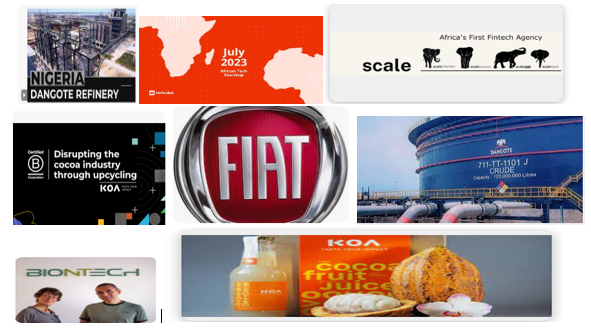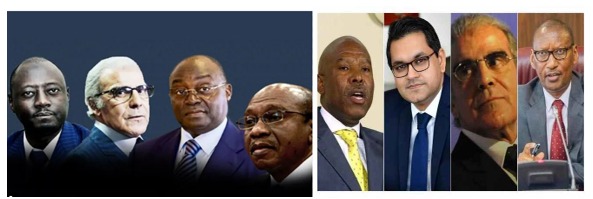“World trade has lost momentum, with trade growth slowing in 2022 and remaining weak into early 2023. That said, global trade growth has remained positive, underscoring how trade has been a force for economic recovery and resilience. Nevertheless, numerous downside risks, from geopolitical tensions to potential financial instability, cloud the medium-term outlook for trade and overall output.” Director-General of the World Trade Organisation, Ngozi Okonjo-Iweala.
Global merchandise trade increased by 2.7% in volume terms in 2022. The volume figure reflected the impact of rising global commodity prices and was significantly lower than the value-added rise of 12.4%. China became the world’s second-biggest exporter of electric motor vehicles after the European Union in Q12022, a noteworthy development in the manufacturing sector. China used its strong position in the production of lithium-ion batteries to increase the value of its automotive product exports by 30% annually. Trade-in services performed better than goods, expanding by 15% in 2022. Following the lifting of mobility limitations connected to the pandemic in many places, international travel resumed its robust upward trend and increased by 70% annually. Focusing only on Africa and examining its trade volume performance would be reasonable. Listing the top ten nations with the most trade with Africa will also be crucial.
- China: The Asian nation has traditionally provided numerous aids to African countries. China has provided loans to the African continent through several programmes, aiding in the area’s development. Aside from this, it has made other trade deals and investments, making it a perfect partner for the continent. Among them, China gave Kenya a grant of $ 51 billion during President Uhuru’s administration. The signing took place in Mombasa, a coastal district of Kenya. Conversely, Rachael Omamo, Kenya’s Foreign Affairs Minister at the time, said that farmers growing avocados and tea would benefit the most because they would not be permitted to sell their goods to China.
- United States:In 2023, the U.S. directed unparalleled high-level trips to the continent, hastening high-level encounters
Aiming to strengthen substantive and meaningful partnerships with African nations, institutions, and peoples across the continent, 17 Cabinet members and leaders of U.S. government departments and agencies have visited 26 African countries in the past year. Vice President Harris visited Ghana, Tanzania, and Zambia, where she announced the mobilisation of more than $8 billion in public and private sector investments in climate and food security, women’s empowerment, and digital inclusion throughout Africa.
- European Union (E.U.): 1. The European Union is the African Continental Free Trade Area’s principal backer and Africa’s major trading and investment partner. Additionally, the E.U. collaborates with every regional economic community recognised by the African Union. Its bilateral ties with African nations continue to be the focal point of its collaboration. fEU disclosed that it had allotted €1.7 billion to address “human-induced humanitarian crises, resulting from wars with often widespread violations of international humanitarian law, conflicts, or outbreaks of violence” this year.
- India:It’s said that India and Africa are ideal partners. As a result, India’s bilateral trade with Africa increased by 9.26% in FY 2022–2023 and reached about $100 billion. According to Shri Goyal, Union Minister of Commerce and Industry, Consumer Affairs, Food and Public Distribution, and Textiles, exports and imports were roughly balanced in FY 2022–2023, with exports totaling US$ 51.2 billion and imports totaling US$ 46.65 billion.
- South Africa:With one of the most diverse economies in the area, South Africa has long been the main force behind intra-African trade, contributing 20.5% of the total in 2022—broader still, southern Africa.
- Japan:The Asian nation is primarily concerned with developing African infrastructure. They are also eager to extract resources. For example, trade between Kenya and Japan reached a record high in 2023, bringing in an astounding Sh18.7 billion in income. The KRA Commissioner General announced a sharp increase in the products traded between the two nations. KRA pledges to cultivate a strong partnership.
- Brazil’s exports to Africa fell from 1211.09 million USD in October 2023 to 1109.67 million USD in November. Brazil’s exports to Africa reached an all-time high of 1350.42 USD million in August 2011 and a record low of 64.43 USD million in January 2000, with an average of 637.82 USD million from 1998 to 2023—source: Brazil’s Mdic.
- Turkey: The Global Forum for Intersectoral Cooperation determined that a 4.5 billion dollar trade between Turkey and Africa was the goal. Increasing the recognition of Turkish SMEs across the continent is another campaign goal. It takes a novel approach. In addition, the Forum seeks to strengthen ties for exports, ensure Turkey is not unfamiliar with the African market, and raise the profile of Turkish SMEs on the continent.
- United Arab Emirates (UAE):
Leading its administration since 2017 under a $336 million arrangement, Dubai Ports World (D.P. World), a significant force in the UAE’s economic expansion throughout Africa, is a component of a larger plan to control a dozen ports and logistics infrastructures around the continent. Companies like D.P. World and Abu Dhabi Ports Group have demonstrated the UAE’s dedication to developing economic ties in Africa over the past 20 years by obtaining licences to run ports from Algeria to Mozambique. With the UAE emerging as the fourth-largest global investor in Africa, just after China, Europe, and the U.S., the Horn of Africa, particularly Somalia, has become a focal point.
10: Russia: Four primary trading partners The four economies of Algeria, Egypt, Morocco, and South Africa account for 70% of Russia’s commerce with Africa. The cornerstone of Russia’s Africa policy, these nations—Egypt ranks 15th in GDP PPP and South Africa ranks 27th—are widely expected to grow into significant economies by 2050. Recent occurrences like Moscow’s withdrawal from the Black Sea grain deal and the violent uprising against Russia’s military leadership spearheaded by Yevgeny Prigozhin, the head of the Wagner Group, sparked conjecture about a possible turning point in Russia’s expanding presence in Africa. Four primary trading partners: The four economies of Algeria, Egypt, Morocco, and South Africa account for 70% of Russia’s commerce with Africa. The cornerstone of Russia’s Africa policy, these nations—Egypt ranks 15th in GDP PPP and South Africa ranks 27th—are widely expected to grow into significant economies by 2050. Recent occurrences like Moscow’s withdrawal from the Black Sea grain deal and the violent uprising against Russia’s military leadership spearheaded by Yevgeny Prigozhin, the head of the Wagner Group, sparked conjecture about a possible turning point in Russia’s expanding presence in Africa.
If the international community keeps doing business with Africa, the continent will be in an even better position in 2024. Additionally, by working together, both continents will gain, resulting in a concerted effort to promote development and increase domestic and international job possibilities. Therefore, to solve the world’s issues in the future, it will be more crucial than ever to promote multilateralism and global partnerships. The Sustainable Development Goals will guide our journey towards the continent of our dreams. They continue to serve as the foundation for expanding and improving the continent. Everyone will need to get together at the table and determine how much they can help one another for this to be effective and for trade volumes to expand throughout the continent. Governments, civic society, science, universities, and the corporate sector are included in that. Furthermore, both the African continent and the international community have bright futures ahead of them.


